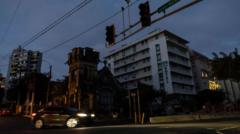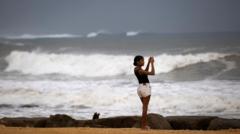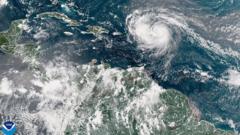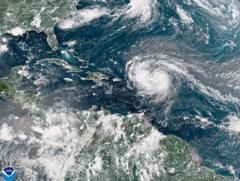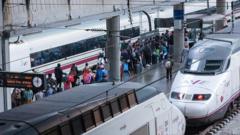The abrupt blackout has reignited the discussion surrounding Puerto Rico's chronic power problems that have remained unresolved since Hurricane Maria devastated the island in 2017. By Tuesday afternoon, some areas, including San Juan's municipal hospital, began to regain power, according to Luma Energy. “The island cannot continue to put up with an energy system that fails its citizens so often,” said Jenniffer González-Colon, the current US congressional representative for Puerto Rico and the incoming governor, in a statement on X.
The current governor, Pedro Pierluisi, echoed these sentiments, demanding accountability from the main power companies, Luma and Genera, as the impacts of blackouts continue to affect the Puerto Rican economy and its people’s quality of life. Throughout the last year, numerous incidents of power outages have disrupted residents' lives, with a significant June blackout leaving about 350,000 customers in the dark amid soaring temperatures and over 700,000 customers losing power during Hurricane Ernesto in August.
As many residents awakened on New Year’s Day still without electricity, frustration was palpable. “They’re part of my everyday life,” lamented Enid Núñez, a 49-year-old resident, reflecting on the ongoing outages. The island's power grid has been vulnerable even before Hurricane Maria, and while U.S. government funding was intended to fortify the grid, its implementation has faced numerous obstacles, contributing to a lack of substantial improvements, as highlighted in a recent report by the U.S. Government Accountability Office.
"This is inexcusable; the power grid has still not recovered from the damage inflicted by Hurricane Maria," stated Mark Levine, the Manhattan borough president. In his plea on X, he emphasized that Puerto Rico, home to 3.5 million American citizens, deserves significantly better from their energy infrastructure.
The current governor, Pedro Pierluisi, echoed these sentiments, demanding accountability from the main power companies, Luma and Genera, as the impacts of blackouts continue to affect the Puerto Rican economy and its people’s quality of life. Throughout the last year, numerous incidents of power outages have disrupted residents' lives, with a significant June blackout leaving about 350,000 customers in the dark amid soaring temperatures and over 700,000 customers losing power during Hurricane Ernesto in August.
As many residents awakened on New Year’s Day still without electricity, frustration was palpable. “They’re part of my everyday life,” lamented Enid Núñez, a 49-year-old resident, reflecting on the ongoing outages. The island's power grid has been vulnerable even before Hurricane Maria, and while U.S. government funding was intended to fortify the grid, its implementation has faced numerous obstacles, contributing to a lack of substantial improvements, as highlighted in a recent report by the U.S. Government Accountability Office.
"This is inexcusable; the power grid has still not recovered from the damage inflicted by Hurricane Maria," stated Mark Levine, the Manhattan borough president. In his plea on X, he emphasized that Puerto Rico, home to 3.5 million American citizens, deserves significantly better from their energy infrastructure.

